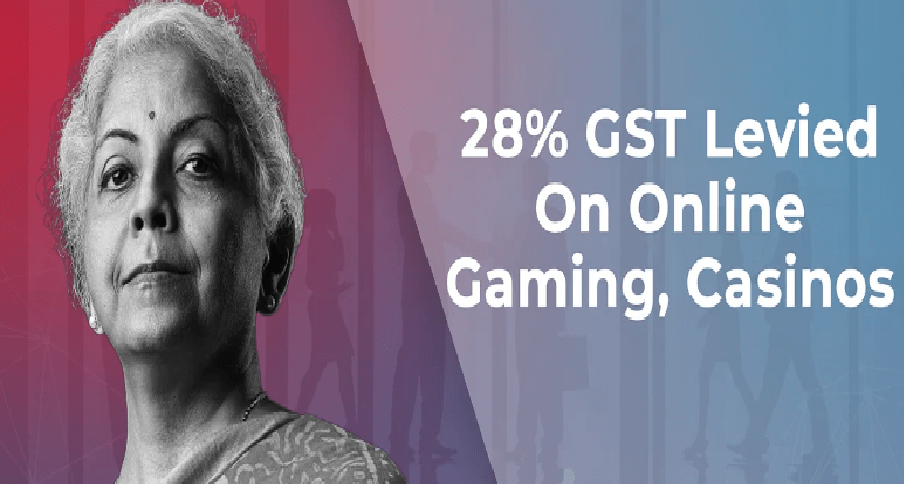The recent decision by the Goods and Services Tax (GST) Council to impose a 28% GST on the total turnover of online gaming has created widespread disappointment among industry stakeholders. The Federation of Indian Fantasy Sports (FIFS) and its director general, Joy Bhattacharjya, express their concerns over the negative consequences this decision may have on the industry. This article explores the implications of the GST decision and its potential impact on the online gaming sector in India.
Challenges for the Online Gaming Industry
Regulatory Framework and GST Implementation
The Indian online gaming industry, which employs over 1 lakh people and is estimated to be worth $2.8 billion in FY22, has been facing challenges related to the regulatory framework. The primary concern revolves around the implementation of GST on online gaming. The classification of games as either games of chance or games of skill determines their tax treatment. Previously, games of skill attracted lower GST, while games of chance attracted more indirect tax. However, the latest decision by the GST Council eliminates this distinction and imposes a 28% GST on all online gaming turnovers.
Impact on the Industry

Damage to the Industry and Investor Confidence
Industry experts and members of FIFS argue that this change in valuation for taxation purposes will cause irreversible damage to the online gaming industry. It is expected to lead to a loss of revenue for the government, as well as a loss of employment opportunities for skilled engineers. Furthermore, the decision may have a chilling effect on the existing $2.5 billion of foreign direct investment (FDI) and discourage any potential future FDI in the sector. This, in turn, may push users towards illegal betting platforms, posing risks to users and further reducing government revenue.
Legal Concerns and Constitutional Challenges
Abhishek Malhotra, managing partner of TMT Law Practice, raises legal concerns regarding the amendment of the GST Act to incorporate this new taxation policy. He questions whether the amendment will stand constitutional scrutiny, considering the distinct classification between games of skill and games of chance established by the Supreme Court and high courts. Bundling all types of gaming under one head may be considered harsh and unsustainable.
Burden on Small Operators and Innovation Opportunities
The new 28% GST rate on Gross Gaming Value has raised concerns about the viability of the online gaming industry. Siddharth Sharma, SVP-Business Strategy and Head of Digital Works, warns that this unexpected move by the GST Council will hinder the industry's growth, restrict innovation opportunities, and potentially compress cash flow and expansion plans. Small operators, in particular, may struggle to bear the burden of this disproportionate taxation, which places them on par with betting and gambling.
Also Read : PVR Cinemas announces ‘bottomless popcorn and Pepsi’ a day after GST rates lowered to 5% on F&B at cinemas
International Perspectives and Comparative Analysis
To gain a better understanding of the Indian government's new taxation policy, it is helpful to consider international practices in the gaming industry. Two common models used globally are the Gross Gaming Revenue (GGR) model and the Turnover Tax Model. The GGR model calculates the total amount of money brought in by a gambling business, deducting the amount paid out for winnings. On the other hand, the turnover tax model taxes the entire prize pool. Countries such as the UK, Australia, Italy, Sweden, Singapore, and Malaysia follow the GGR model.
Shifting Taxation Models
The turnover tax model, known for dramatically increasing the tax burden on platforms, has led to the migration of gaming operations to offshore locations. To prevent revenue loss, several countries, including the UK, have shifted from the turnover tax model to the GGR model. It remains to be seen how the new taxation policy proposed by the Indian government will align with these global practices.
The imposition of a 28% GST on the total turnover of online gaming in India has left the industry disappointed and concerned about its future. Stakeholders fear irreversible damage, loss of investor confidence, and a shift towards illegal betting platforms.
Legal challenges and constitutional considerations add to the uncertainties surrounding the GST decision. As the industry awaits further developments, the gaming sector must navigate the complex challenges posed by the regulatory framework and strive for sustainable growth in the face of increasing taxation.
To get more news updates –Speednews





